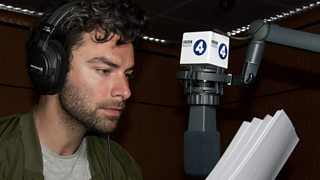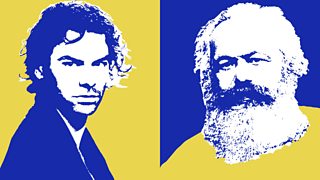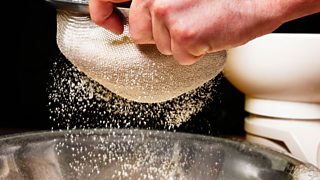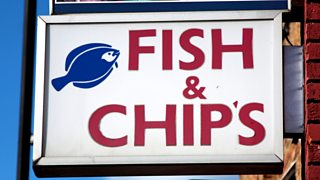Poldark parlance: 14 Cornish phrases and what they mean

As the Cornish language declined back in the 18th Century, and English largely took over, the two languages intermingled and evolved into a rich Cornish dialect.
, what better opportunity to scrub up on some good, old-fashioned Cornish dialect.
1. Aright, my 'ansum?
No, not an enquiry from an admirer or a casual come-on, this is a simple “how are you?” 'Ansum is a universal term of endearment directed at men and women alike, and can be used for strangers as well as friends - handsome or not.
2. Dreckly
If someone proffers “I’ll do it dreckly”, don’t expect the task in hand to be completed any time soon. Dreckly is to the Cornish what mañana is to the Spanish – I’ll do it when I’m good and ready and not before. “See you dreckly” is the Cornish “ciao”, or “see you later”. That could mean later that day, tomorrow, or well into the future. You might be waiting around for some time…
3. Proper job
Delighted by that cream tea you just ate? “Proper job.” Enchanted with your new wheebarrow? “Proper job.” Thoroughly enjoyed the latest episode of Poldark? “Proper job.” It’s a mark of quality that can be applied to just about anything, not just worthwhile employment.
4. Stank
Nothing to do with a nasty smell (although you might whiff after you’ve done one), stank simply means a walk – normally a long and arduous one up a steep hill, what with it being Cornwall: “Arear! That was a fair old stank.”
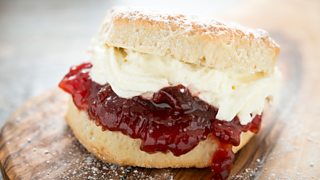
5. Teddy
Not the popular furry playmate but a crucial ingredient in the much-loved Cornish pasty, teddy is Cornish vernacular for the common and garden spud. Order a teddy oggy for a potato pasty, or a turmut and teddy pie for a dish consisting of meat, potato and turnip under short crust pastry. Delicious.
6. Kiddlywink
An unlicensed beer shop, a kiddlywink was permitted to sell beer or cider but not spirits like traditional taverns and inns. So shopkeepers would keep contraband brandy in a kettle under the counter. The knowing clientele, often smugglers and other disreputable types, would then wink at the kettle when they needed a top up. Farm labourers could visit a kiddlywink to receive beer instead of their wages (which probably didn’t go down too well with the rest of the family).
7. Chacking
Meaning thirsty, as in “I’m chacking for a cider – if you need me I’ll be at the kiddlywink.”
8. Whist
Wan-looking, weak or faint. A characteristic displayed by many a miner, peasant, or urchin in Poldark – not to mention the viewers: after gazing at the broody, shirtless estate owner atop his horse, atop a cliff, many a young woman has been rendered well and truly whist.
9. Piddledowndidda?
Like the rest of the British, the Cornish relish a conversation about the weather. This literally translates as “was it raining?” or “get rained on did you?” On a visit to Cornwall, the answer is very likely to be yes.
10. Emmet
A derogatory nickname for tourists or outsiders. Literally meaning ant, it’s used by the Cornish locals to describe the summer influx of visitors – often red with sunburn and seen scurrying around the countryside.

11. Teasy as’n adder
Derived from the Cornish word “tesek” meaning “hot-tempered”, teasy can be used to describe an irritable child, or a grumpy adult who deserves to be given a wide berth: “He’s imbibed too much scrumpy, he’s teasy as’n adder!”
12. Wasson me cock?
A common greeting. Don’t worry, they’re not asking you to inspect their nether regions for foreign objects – they just want to know what you’re up to.
13. Giss on!
Are you pulling my leg? Don’t talk rubbish!
14. Kows moy lent mar pleg
Finally, one to remember if you’re planning an imminent trip to the Celtic kingdom of Kernow - it might prove useful if you find yourself out of depth in a conversation with the locals. It simply means “please speak more slowly”.

Proper job, me lover! Now don’t be teasy, settle down dreckly to geek at Poldark with a belly-tember teddy oggy and a gooder sense of what the sumpmen and bal-maidens are all gabbling on about. Bleddy 'ansum that is.
-
![]()
Aidan Turner, aka Ross Poldark, narrates A History of Ideas animations.
-
![]()
Can you pick out brooding Ross Poldark from the philosophers?
-
![]()
Take a closer look at the food that Poldark has been eating.
-
![]()
Are you grammatically gormless or a punctuation perfectionist?
